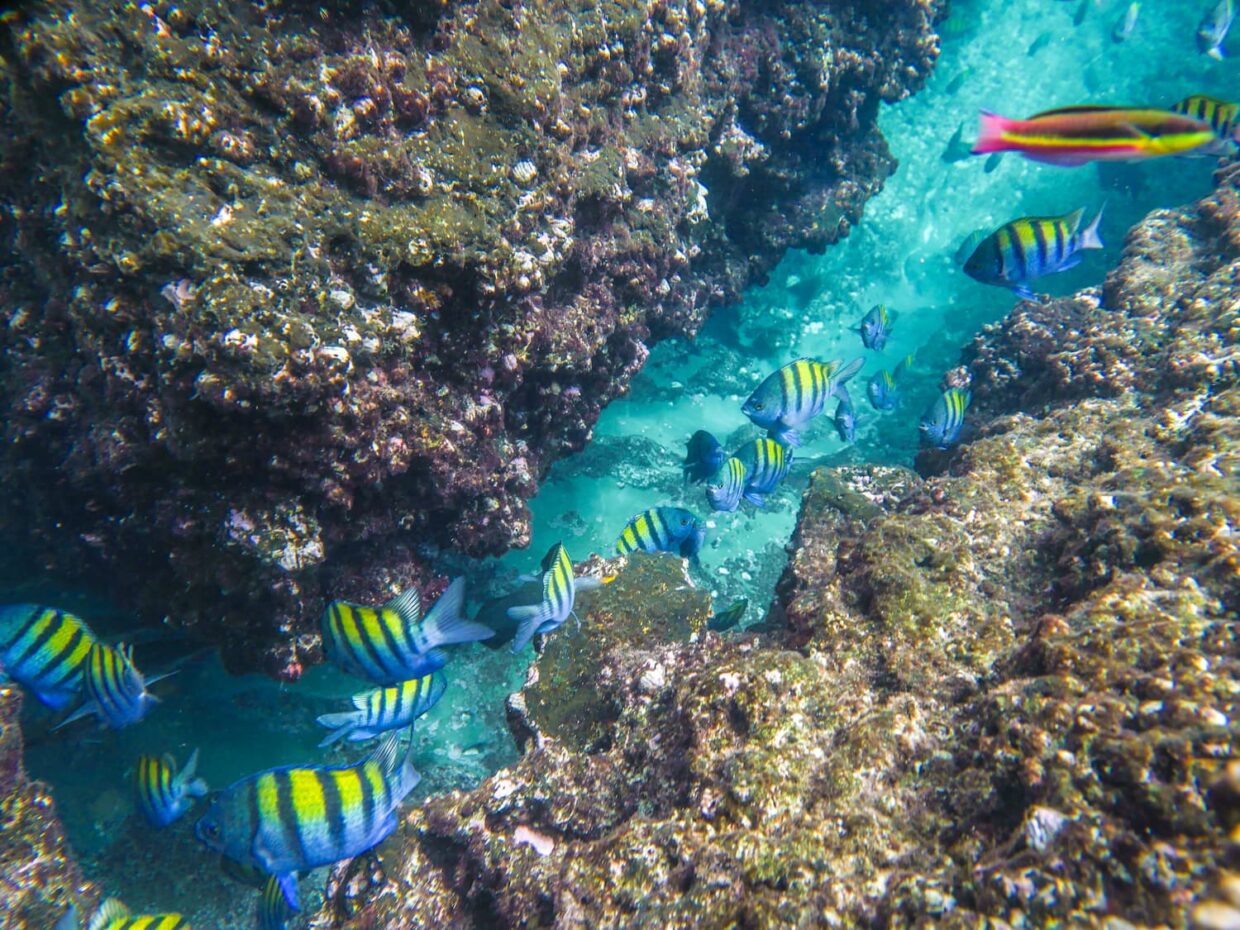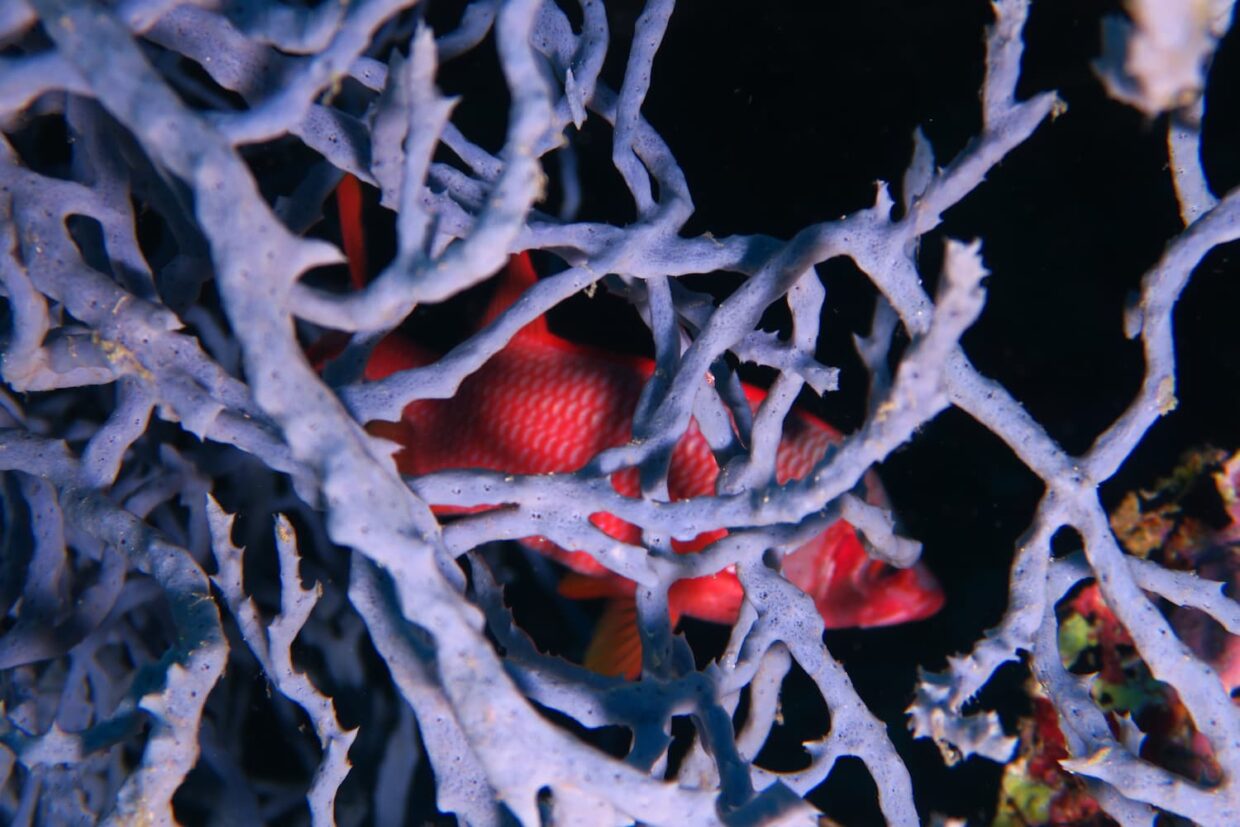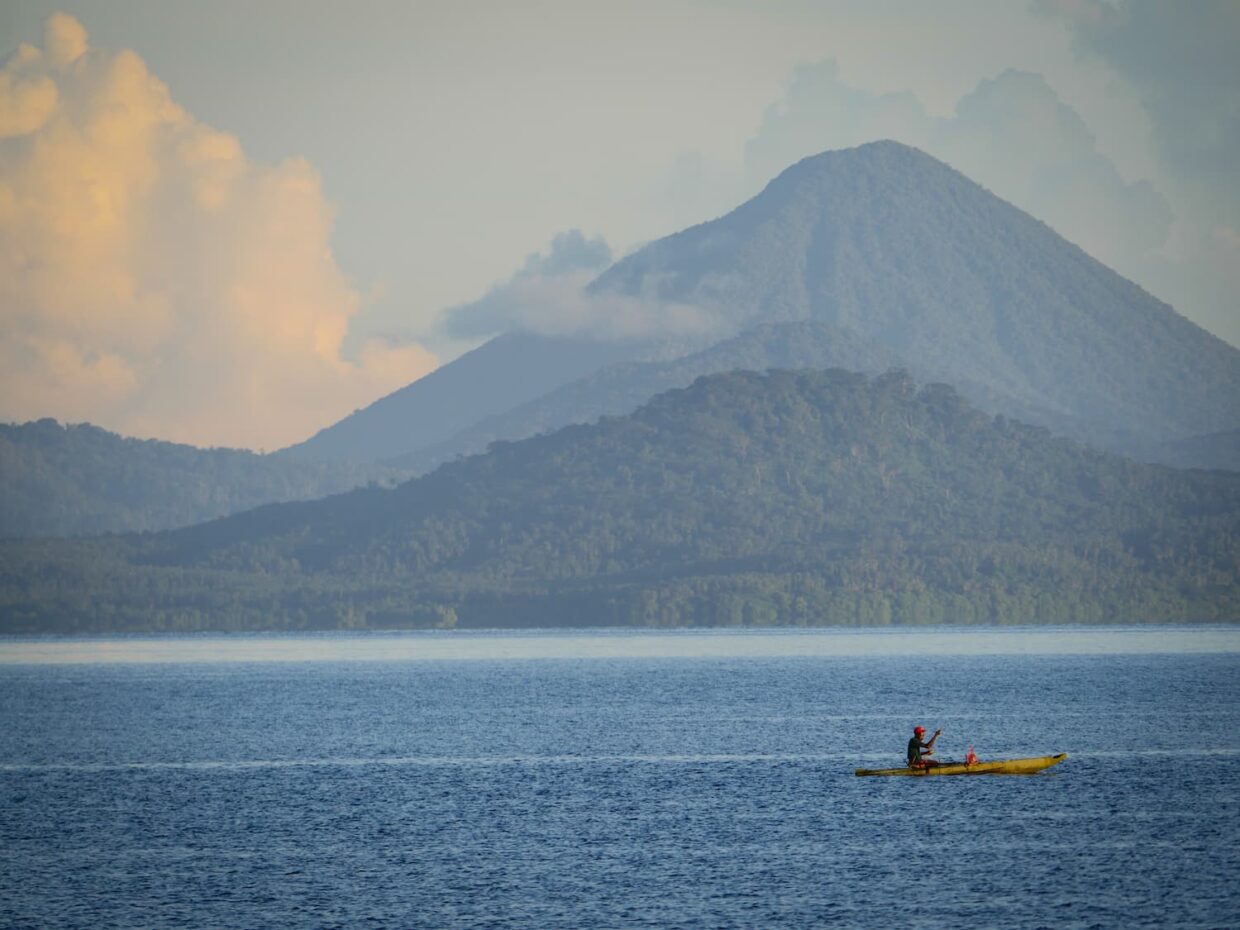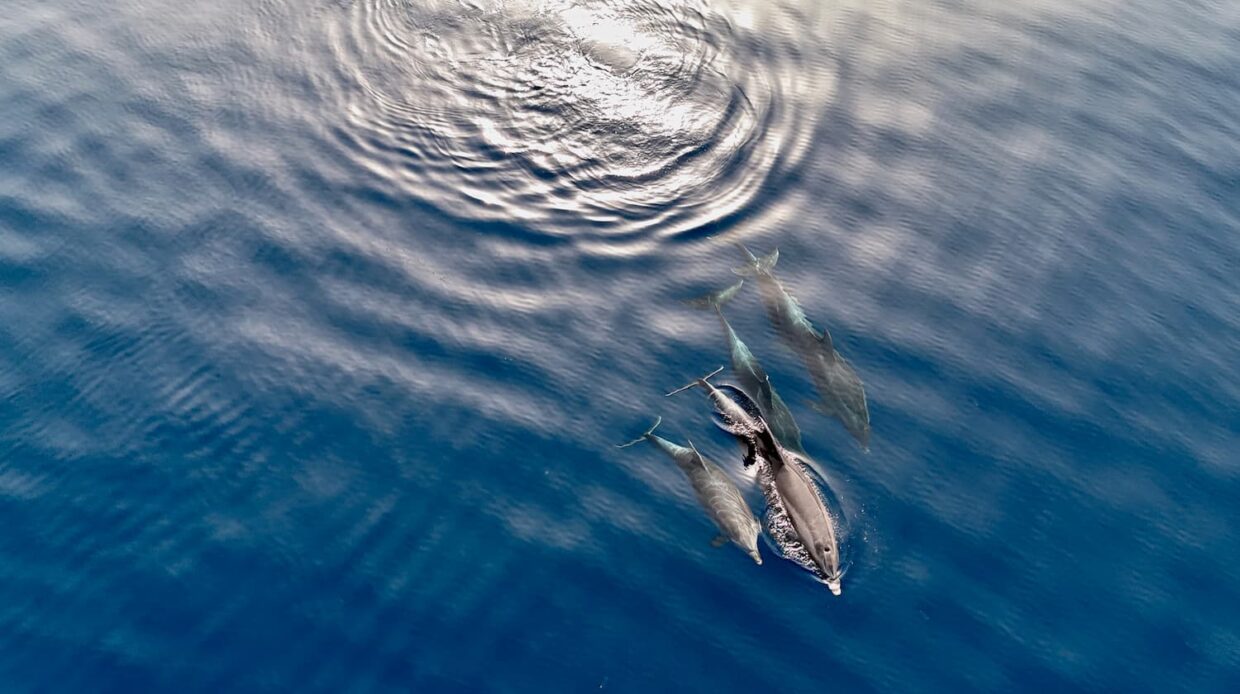Why is the Ocean a vital ally in the fight against climate change?
Whether we live on the coast or inland, we depend on the Ocean, since it plays a major role in our climate. However, strong anthropogenic pressures prevent it from fulfilling its role as a regulator, exposing humans to ever more frequent natural disasters and the marine life it shelters to ever more intense challenges.
Let's explore together how the Ocean is an ally in the fight against climate change, and why it's crucial to preserve its biodiversity.

Why is the ocean essential to our planet?
The Ocean, blue lung of our planet, is alive and vital, playing a central role in regulating the Earth’s climate. As an essential ally in the fight against climate change, it acts as a vast reservoir capable of absorbing much of the excess heat and greenhouse gases generated by human activities.
As oceanographer and climatologist Laurent Bopp says in the episode “Ocean, Climate, Biodiversity, same battle?” of our podcast Un Hublot sur l’Océan: “The Ocean is an essential player in the climate system, and there are two main reasons for this. The first is that the ocean absorbs most of the extra heat in the system. So if the Ocean wasn’t there, that heat would stay in the system, and everything would go faster! The second reason is that, in addition to absorbing heat, the Ocean absorbs carbon. It absorbs a large part of our CO₂ emissions” .
The importance of the Ocean in the fight against climate change is therefore crucial, and is illustrated by two main mechanisms:
- on one hand, the Ocean absorbs around 90% of the additional heat trapped in the atmosphere due to increasing greenhouse gas emissions, helping to limit the rise in terrestrial temperatures.
- on the other hand, it captures a large proportion of the carbon dioxide (CO₂) emitted, mitigating the effects of climate change. Some 2.5 billion tonnes of CO₂ are absorbed by the Ocean every year.
What are the impacts of global warming on the Ocean?
A cascading effect
When the planet’s thermostat is threatened by human activity and the climate change that is one of its consequences, the impacts are huge.
The Ocean suffers a cascade of effects: acidification, deoxygenation, rising sea levels, oceanic heat waves…
These direct consequences on the Ocean have profound impacts on marine and terrestrial ecosystems, as well as on human populations.
What are the repercussions for underwater life?
Ocean warming is rapidly affecting marine ecosystems.
Marine ecosystems are used to stable temperatures compared to continental ecosystems, so even one degree of warming, or a tenth of a degree of warming at depth, can have a very strong impact on these ecosystems.
A mere tenth of a degree can make all the difference. Naturalist diver Vincent Maran explains: “In biology, there is what can be called a threshold effect. In other words, a single additional degree can cause a change in the physiology, metabolism and enzyme functioning of an organism, encouraging the development of certain microorganisms to the detriment of others, and this can have serious consequences for living beings.“
Underwater heatwaves, unlike continental ones, can last for months or even years. And this increase in water temperature profoundly affects marine life, not only because of the increased heat, but also because it alters the chemical and physical composition of the water. Warm water contains less oxygen, so there’s also a phenomenon of Ocean deoxygenation that affects underwater life, since many organisms are sensitive to the amount of oxygen in the water. This leads to major mortality episodes. With this deoxygenation also comes Ocean acidification, as the more CO₂ the water absorbs, the more acidic it becomes. This phenomenon weakens calcareous organisms or crustaceans and certain planktonic organisms, thus disrupting the entire food chain.
Take coral reefs, for example. They are home to around 25% of all marine species, and are experiencing massive bleaching due to rising Ocean temperatures and acidification. If global temperatures rise by 1.5°C, between 70% and 90% of coral reefs could disappear, leading to the collapse of many interconnected ecosystems.

The other major consequence of climate change is the relocation of species. In search of cooler temperatures, tropical marine species are migrating to higher latitudes. This phenomenon alters ecological balances and creates competition between newly-arrived species and those already present.
These consequences, although they may seem independent of one another, are in fact closely interconnected. To illustrate this, let’s take the example of the Mediterranean. The opening of the Suez Canal, a direct action by humans, enabled species to migrate from the Red Sea to the Mediterranean sea. Subsequently, global warming has favored the settlement of these species in the Mediterranean basin, due to the rising temperature of its waters. This has led to the local destruction of ecosystems, notably through the impact on Posidonia meadows, essential for carbon storage. This disequilibrium reduces the Mediterranean’s capacity to mitigate the effects of climate change, and the vicious circle is set in motion. Everything is connected!
And the consequences for humans?
These transformations are not limited to the marine environment, but also influence our populations, particularly those dependent on fishing or living in vulnerable regions. These impacts result in a series of environmental, economic and social challenges that are redefining the living conditions of millions of people.
Rising sea levels are leading to an increase in coastal hazards such as flooding, erosion and landslides, which occur once or several times a year in some places instead of once a century previously. Combined with the intensification of tropical cyclones, these disasters are set to increase, with a corresponding rise in human and economic losses.
Fishing, an essential source of protein for some 3.3 billion people worldwide, is also under serious threat from the effects mentioned above, such as ocean acidification and deoxygenation, and species migration.

To all these threats to the Ocean we can add new ones, such as deep-sea mining, which is currently being debated, and which would have major consequences for life underwater or on land, the Ocean being a veritable carbon sink.
What solutions do we have?
As Laurent Bopp says, “there are two main pillars of solutions”: mitigation and adaptation.
Firstly, we need to limit climate change as much as possible, by acting now with the data we have and by setting greenhouse gas reduction targets for the coming years. This requires international initiatives such as the Paris Agreement, or other attempts like the COP on climate change mitigation.
Everyone’s individual actions in all areas, whether directly linked to the Ocean or not, are also very important, since it’s by acting together that our actions will have an impact.
Then comes adaptation. Climate change is a reality that is already affecting ecosystems, so we need to find solutions to limit these impacts and strengthen the resilience of ecosystems in facing these transformations. For example, through the creation of Marine Protected Areas that limit overfishing or tourism in certain areas, or through initiatives to reduce pollution in certain regions.

Together, let’s protect this vital ecosystem
Climate change is therefore threatening the equilibrium of the Ocean and its marine ecosystems through increased heat and the resulting change in the chemical and physical composition of the water. This phenomenon is endangering the global system essential to maintaining a temperate climate in the atmosphere, making it imperative to preserve this vital engine that sustains not only biodiversity, but also human life by regulating our temperature, absorbing our carbon and providing essential resources such as oxygen, and livelihoods to millions of people.